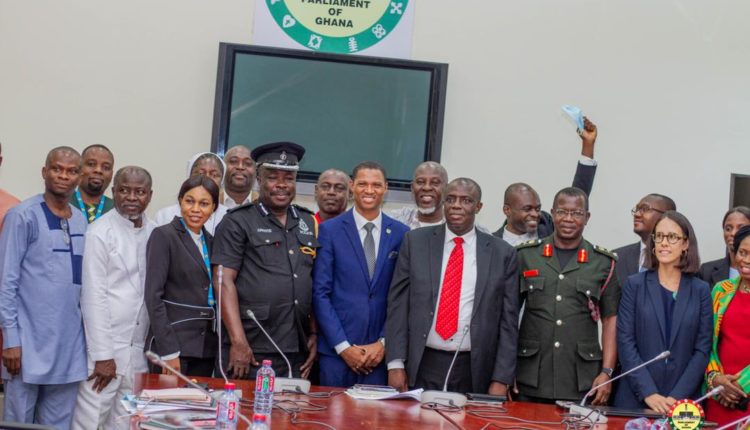Speakers at a stakeholder engagement on the Criminal Offences (Amendment) Bill and Armed Forces (Amendment) Bill, 2022 have unanimously endorsed the need for Ghana to abolish the death penalty from the statute books, to help preserve the sanctity of human life.
They said the imposition of the death penalty on persons who had been convicted of especially, murder, negated the right to life and raised serious concerns about human rights in the country.
For instance, the speakers cited numerous instances where many persons accused of murder and were sentenced to death by hanging served between 10 and 15 years in prison only to be proved innocent after succeeding in their appeals against their sentence.
They, therefore, were of the view that Ghana could do away with capital punishment in the country’s statute books since doing so fell within the remit of Parliament.
Speakers
Those who made the call Monday (April 11, 2022) were a Justice of the Court of Appeal, Justice Dennis Adjei; a constitutional and human rights lawyer, Martin Kpebu; the Director-General in charge of Legal Services of the Ghana Armed Forces, Brigadier General Amoah Boakye, the National Democratic Congress Member of Parliament for Madina, Francis Xavier Sosu; and the Campaign and Fundraising Coordinator of Amnesty International Ghana, Samuel Agbotse.
Other civil society organisations such as the United Nations Association-Ghana (UNAGH) and the Centre for Democratic Development Ghana (CDD) also threw their weight behind the call for abolishing the death penalty.
Private members’ bills
The meeting allowed the stakeholders to share their views on the proposed amendment of the Criminal and Other Offences Act and the Armed Forces Act, with the view of achieving up to about 95 per cent abolishing of the death penalty in Ghana.
The two private members’ bills, which are being sponsored by Mr Sosu and other MPs, are expected to be introduced in Parliament when it reconvenes for the second meeting of the second session.
Rationale behind bills
Explaining the rationale for sponsoring the bills in support of abolishing the death penalty, Mr Sosu said the bill if passed would have eliminated about 90-95% offences carrying Death Penalty in exception to treason and High Treason which are entrenched provisions in the 1992 Constitution.
He indicated countries such as neighboring Sierra Leone, Benin, Guinea, Cote D’Ivoire, Senegal, Togo, Chad and Malawi, among others, have currently all abolished the Death Penalty and Ghana can join the list.
He said the last Constitutional Review Commission found it necessary to propose that the penalty of death needed to be substituted with life in imprisonment.
He expressed appreciation to the representatives of the Ghana Armed Forces, Ghana Police Service, Judicial Service of Ghana, Africa Center for International Law and Accountability, United Nations Association of Ghana, the Diplomatic Community, Chiefs and people of Madina Constituency, Academia, Civil Society, the Diplomatic Corps, among others for their presence, insights and support.
“Together, we must create a more open and fair society and one that truly respects the rights and freedoms of individuals as enshrined in the 1992 Constitution, African Charter for Human and People’s Rights, and International Covenant on Civil and Political Rights, among others” he added.


Comments are closed.